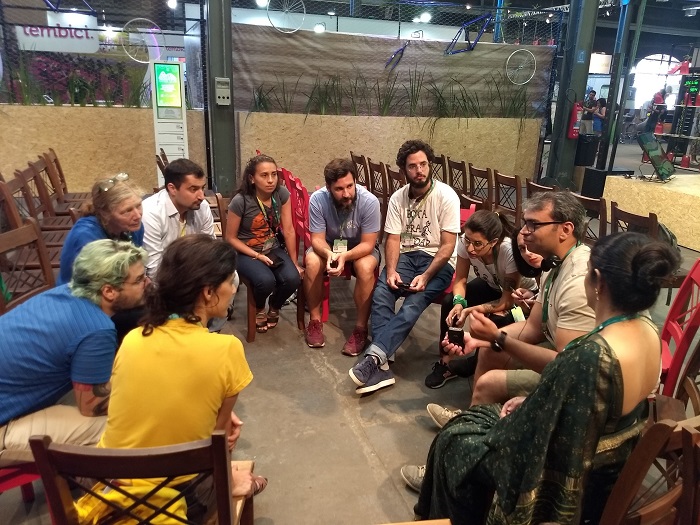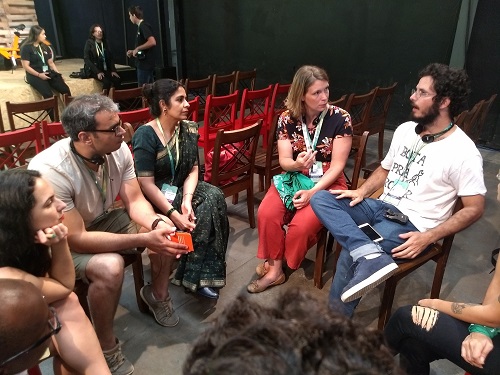
Velo-city day 2: Bike sharing as a tool for social inclusion
The second day of Velo-city 2018 brought another inspiring session on bike sharing. No operators this time, only activists and city officials, discussing the potential for social inclusion that lies within bike sharing systems.
Daniel Valença, co-founder of Ameciclo and advisor for the Brazilian Bicyclists Union, presented the grassroots project he led to empower his local community in Recife, one of the most motorized and yet poorest cities in Brazil: they started collecting scrapped bicycles, refurbishing them and letting the people of the neighbourhood with the lowest income use them as they liked. They created a real network of stations where the bikes could be retrieved, all with the help of local activities. The project was an immediate success: the community uptake was great, newspapers started talking about the experiment, they received political attention and even some funds to expand their activities. A good debate started with the audience, asking questions and proposing improvements and new solutions to further develop the initiative.
“Once I spoke with our friends at the library and they were complaining people were only asking for bicycles and not for books anymore” concluded Daniel with a laugh.

After him spoke Mariel Figueroa, Director of Sustainable Mobility in Fixit. She presented some interesting data on the gender inclusion and balance in cycling and in the use of the bike sharing system in Rosario: “As it happens everywhere, also in Latin America women tend to cycle much less than men: the ratio is generally 70% men and just 30% women. This drastically changes when the general cycling modal share is above 10%. The city of Rosario also used bike sharing as a tool to collect data on its users, and could clearly see that women tend to stick more to segregated cycle lanes than men. These two examples show clearly that women need to feel much safer than men to take up cycling, and it’s the role of the local authority to guarantee it”.
Another interesting discussion was initiated, sharing experiences and initiatives from all over the world. Anvita Arora, Program Director of the Transport and Urban Infrastructures vertical of KAPSARC and strong advocate for women’s rights, concluded the session: “We have to intervene in the data collection and interpretation stage to make sure women’s needs are taken into account at this initial stage and delivered into the city planning phase: only this way we can ensure cycling infrastructure and public space is built to make women feel safe in their city”.
Network/Project Involved:
Contact the author
Recent news!
Upcoming events
Contact Us
Avenue des Arts, 7-8
Postal address: Rue de la Charité, 22
1210 Brussels, Belgium









